Blog Archives
US291 – Holding onto Hope – Holocaust Tile by Madison Vitacco
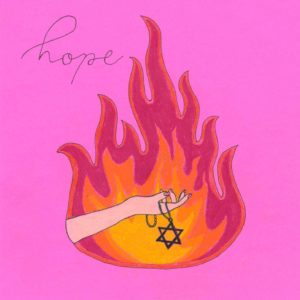

This artwork by, Madison Vitacco, is inspired by “Night” by Elie Wiesel and the Tile Wall at the U.S. Holocaust Memorial Museum in Washington, D.C. The flame surrounding the arm represents the Holocaust. The hand holding the Star of David necklace pays tribute to the Jews who held onto their faith and belief in God. […continue]
Read MoreUS290 – Dove and Rainbow – Holocaust Tile by Amber Vergara
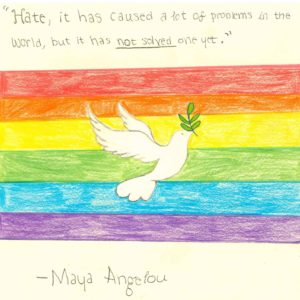

This artwork by Amber Vergara, is inspired by “Night” by Elie Wiesel and the Tile Wall at the U.S. Holocaust Memorial Museum in Washington, D.C. The dove symbolizes peace and can signify the delivery of a message from a loved one. Here, the dove reflects the spirits of those who perished during the Holocaust. The […continue]
Read MoreUS289 – Choiceless Choice – Holocaust Tile by Emily Reed


This artwork by Emily Reed, is inspired by “Night” by Elie Wiesel and the Tile Wall at the U.S. Holocaust Memorial Museum in Washington, D.C. This tile depicts the choiceless choice Elie and his father had to make when deciding whether to remain in the infirmary at Auschwitz or participate in the forced evacuation that […continue]
Read MoreUS287 – Spiritual Resistance – Holocaust Tile by Olivia Oliveira
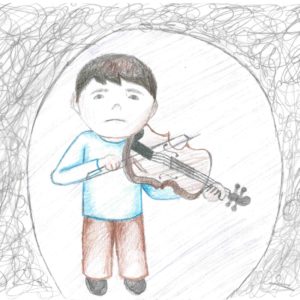

This artwork by Olivia Oliveira is inspired by “Night” by Elie Wiesel and the Tile Wall at the U.S. Holocaust Memorial Museum in Washington, D.C. It represents Juliek’s spiritual resistance against the Nazis in “Night.” Juliek kept his violin, which was an act of defiance because the Nazis took all of the Jews’ possessions. In […continue]
Read MoreUS285 – Skeleton Hand – Holocaust Tile by Rola Mustafa
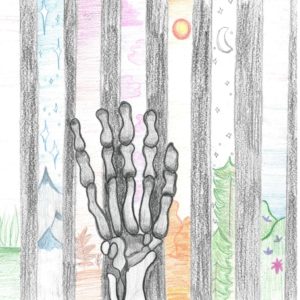

This artwork by Rola Mustafa is inspired by “Night” by Elie Wiesel and the Tile Wall at the U.S. Holocaust Memorial Museum in Washington, D.C. This tile represents the prisoners at Auschwitz and the world outside of the camp. The skeleton hand represents the prisoners who had been starved to the point where they resembled […continue]
Read MoreUS284 – Hope and Remembrance – Holocaust Tile by Dana Treier
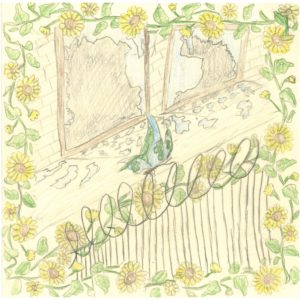

This artwork by Dana Treier is inspired by “Night” by Elie Wiesel and the Tile Wall at the U.S. Holocaust Memorial Museum in Washington, D.C. It depicts Kristallnacht, the Night of Broken Glass, when Jewish businesses were targeted and deliberately vandalized. The tile includes a barbed wire fence to symbolize isolation and antisemitism as well […continue]
Read MoreUS282 – Burning, Barbed Wire, and Butterflies – Holocaust Tile by Megan Jarvis
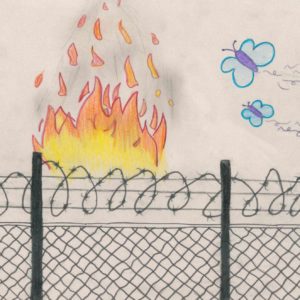

This artwork by Megan Jarvis is inspired by “Night” by Elie Wiesel and the Tile Wall at the U.S. Holocaust Memorial Museum in Washington, D.C. The barbed wire represents the Jews’ loss of freedom and the Nazis’ power at the concentration camps. The fire represents the loss of faith Elie and other prisoners faces as […continue]
Read MoreUS281 – Never got to FLY – Holocaust Tile by Samantha Cardo
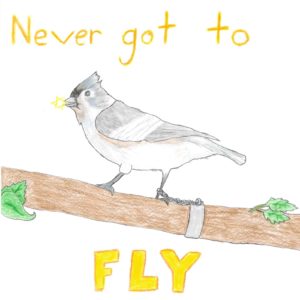

This artwork by Samantha Cardo is inspired by “Night” by Elie Wiesel and the Tile Wall at the U.S. Holocaust Memorial Museum in Washington, D.C. The phrase on the tile is: “Never got to FLY.” The bird in the artwork is holding in its beak the Star of David. The bird has a bandaged wing […continue]
Read MoreUS279 – Those who bled are remembered. – Holocaust Tile by Ava Bruzzio
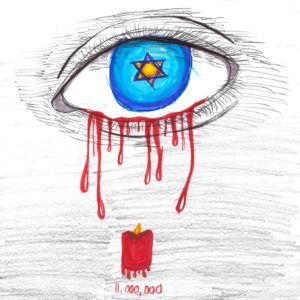

This artwork by Ava Bruzzio is inspired by “Night” by Elie Wiesel and the Tile Wall at the U.S. Holocaust Memorial Museum in Washington, D.C. The pupil of the eye in this artwork is the Star of David to symbolize the Jewish faith, and the blood running from the eye signifies the pain the Jewish […continue]
Read MoreUS278 – Pink Butterfly – Holocaust Tile by Lily Anderson
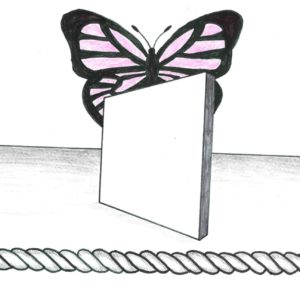

This artwork by Lily Anderson is inspired by “Night” by Elie Wiesel and the Tile Wall at the U.S. Holocaust Memorial Museum in Washington, D.C. This tile is meant to convey a message of hope. Ropes are often used to symbolize unity. They are included to show how Jews during the Holocaust were united in […continue]
Read More